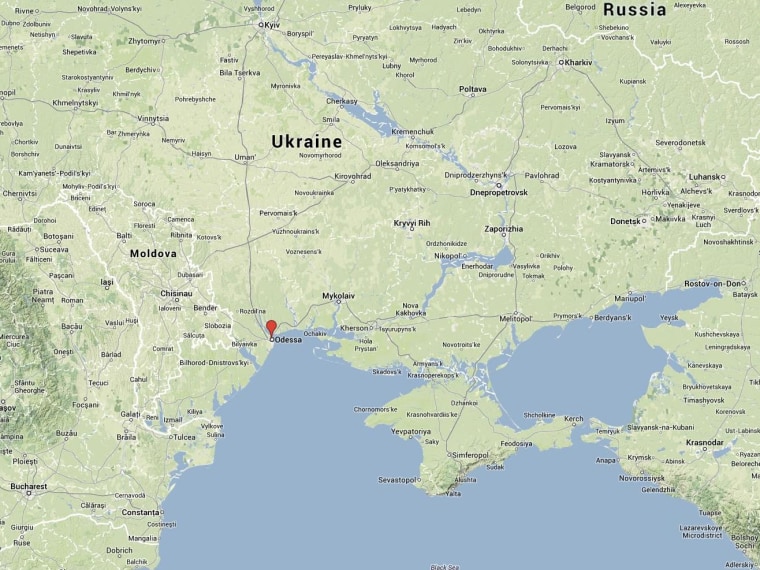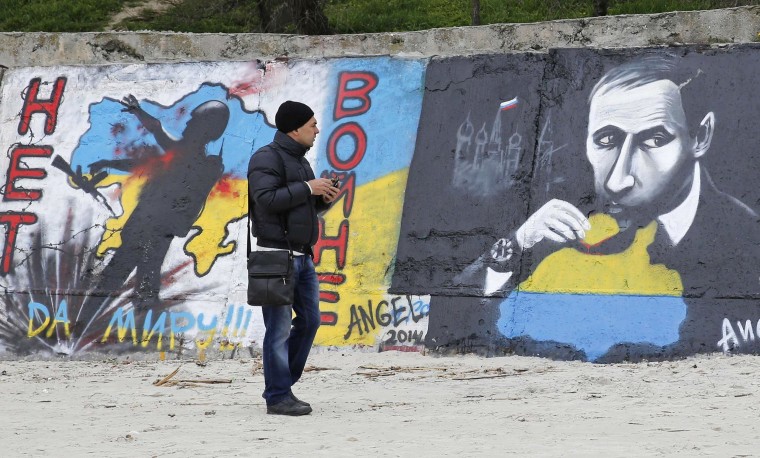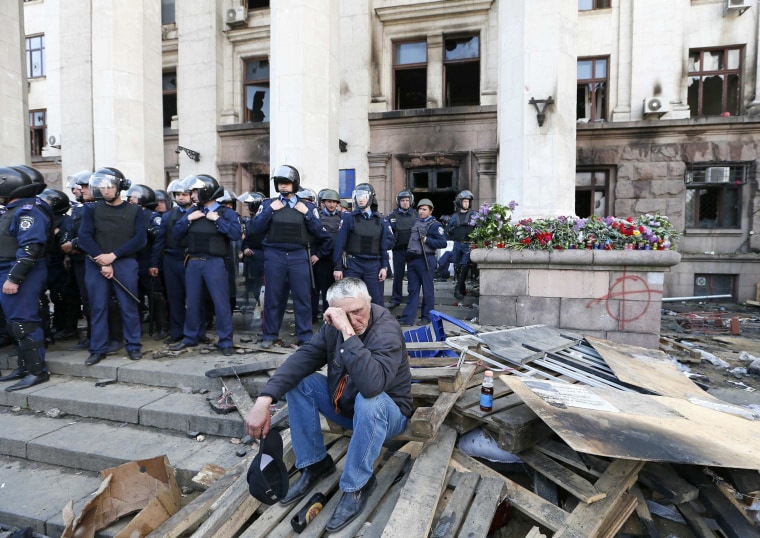The Ukrainian cosmopolis of Odessa, a city with historical connections to ancient Greece, the Ottoman Empire and the Russian Revolution, has been swept up in another monumental phase in the region’s history.
The Russian-backed unrest that started in Crimea and the eastern part of Ukraine erupted in Odessa on Friday when riots broke out between pro-Russia and pro-Ukraine groups and a government building was set on fire, killing 40 people.
On Monday, officials in Kiev sent an elite national guard unit to re-establish control of the restive city.
The Black Sea port is seen as vital connection between Ukraine and the rest of Europe — and the world — especially now that Crimea has been so forcefully embraced by Mother Russia. Many experts warn that if Odessa goes the way of other break-off cities in Ukraine's east, the entire country could be in serious trouble.
“Ukraine is in grave danger of collapsing as a country,” James Goldgeier, Dean of the School of International Service at American University in Washington, D.C., told NBC News on Monday. “Any expansion of the unrest is significant.”

With a population just over 1 million, Odessa is the third−largest Ukrainian city after the capital Kiev and Kharkiv in the northeast — and a vital shipping and transportation hub, for both commercial and recreational reasons. The city is home to key railroad and highway junctions, and is considered a major industrial, cultural, scientific, and resort center.
Odessa was the Soviet Union's leading Black Sea port and it remains a vital link, shipping grain, sugar, machinery, coal, petroleum products, cement, metals, and timber. In 2008, the Port of Odessa handled over 34.5 million tons of cargo, according to World Port Source. Meanwhile, some 150,000 tourists visit the city every year.
“Odessa is so important because it in fact is in the southwestern part of Ukraine, and it was a place that was perceived as being more stable than east Ukraine because it has a smaller percentage of ethnic Russians,” said William Pomeranz, Deputy Director of the Kennan Institute for Advanced Russian Studies of the Woodrow Wilson Center in Washington, D.C.
He noted that it’s still unclear how much of the insurgency is being directly influenced by Moscow, but any unrest in other parts of Ukraine now “makes it more difficult for the current provisional government (in Kiev) to maintain a united front and try to isolate the areas of uprising in the eastern part of Ukraine.”
And if Ukraine’s central government loses both Crimea and Odessa, it would essentially become a landlocked nation.
“Ukraine without any seaports obviously is a much weaker country,” Pomeranz said.
“Odessa is crucial to Ukraine’s economy, that is the most important thing to understand,” said Anton Fedyashin, Executive Director of the Initiative for Russian Culture at American University. “A lot of Ukraine’s trade with the rest of the world goes through Odessa.”
And there’s additional worry that instability in Odessa could spread to the “Transnistria” region, an ethnically diverse strip of land between Ukraine and Moldova.
“We've worried about Russian designs on Transnistria from the start, so the expansion of violence also threatens to spill beyond Ukraine,” said Goldgeier.
Odessa was ripe for being dragged into the same strife facing the eastern part of Ukraine because it has such a diverse population.
“Ukraine is in grave danger of collapsing as a country."
“And it has been historically a very big city with a huge Russian population, Jewish and Ukrainian, so it’s always been a really sort of remarkable mixing bowl,” said Fedyashin.
The primary language spoken in Odessa is in fact Russian, and in 2010 most of the people in that region, as well as the eastern sections, voted for former president Viktor Yanukovych, a pro-Russia figure who was ousted in February.
So, Fedyashin noted, ending the strife in the country at large is not as easy as telling the Russians to go home.
“To marginalize and alienate the Russians and believe that this will solve Ukraine’s problems is absolutely crazy,” he said. “The Russians and the Europeans are going to have to work together.”

